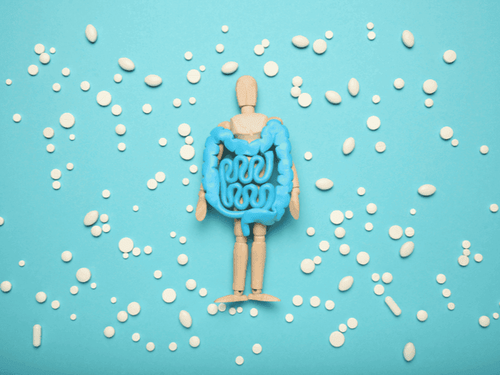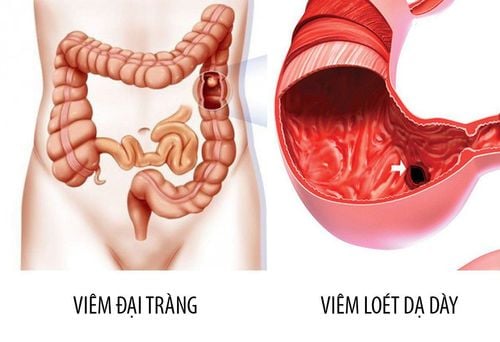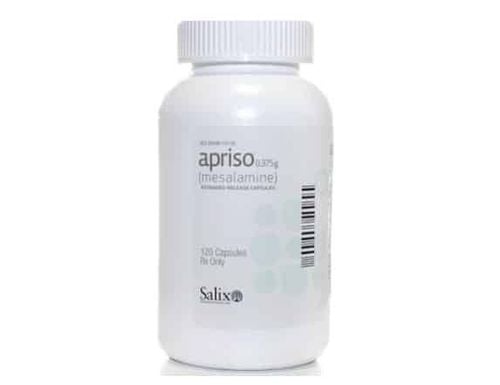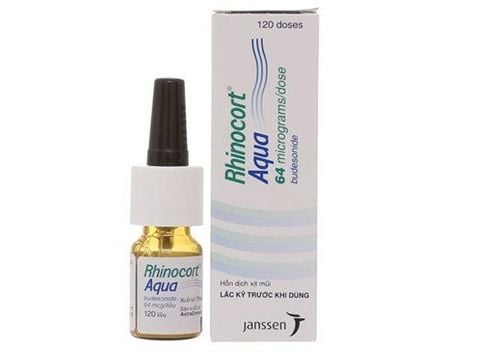This is an automatically translated article.
The article is written by Master, Doctor Mai Vien Phuong - Gastroenterologist - Department of Medical Examination & Internal Medicine - Vinmec Central Park International General Hospital.Ulcerative colitis does not manifest the same in every person. Its symptoms also do not stay the same over time. They may appear for a while, go into remission, and then recur again. Here are 8 reasons why your ulcerative colitis treatment may change over time
1. The first treatment you tried didn't work
The first treatment that many people with mild to moderate ulcerative colitis try is an anti-inflammatory drug called aminosalicylate. This class of drugs includes:Sulfasalazine (Azulfidine). Mesalamine (Asacol HD, Delzicol). Balsalazide (Colazal). Olsalazine (Dipentum). If you've been taking one of these medicines for a while and your symptoms still don't improve, your doctor may switch you to another drug in the same class. Another option for treating stubborn symptoms is to take another class of medication, such as corticosteroids.
2. Your illness has gotten worse
Ulcerative colitis may worsen over time. You may start off mild, but as your symptoms become more severe, your doctor will adjust your medication.Your doctor may prescribe you another medicine, such as corticosteroids. Or you can start using an anti-TNF drug. This group includes adalimumab (Humira), golimumab (Simponi), and infliximab (Remicade). Anti-TNF drugs block an immune system protein that promotes inflammation in your gastrointestinal (GI) tract.

3. You're in an outbreak
Ulcerative colitis symptoms come and go over time. When you have symptoms such as diarrhea, abdominal pain and urgent bowel movements, you are having a flare-up. During flare-ups, you may have to adjust your dosage or change the medications you take to control symptoms.4. You have other symptoms
Taking ulcerative colitis medication will help control your disease and prevent flare-ups. You may need to take it with other medicines to treat specific symptoms such as:Fever: Extra antibiotics. Joint pain or fever: Nonsteroidal anti-inflammatory drugs (NSAIDs) such as aspirin, ibuprofen (Advil, Motrin), or naproxen (Aleve). Anemia: Iron supplementation. Some of the above medications can irritate your digestive tract and make ulcerative colitis worse. So you need to check with your doctor before taking any new medicine - even one you buy without a prescription.

5. Are you experiencing side effects?
Any medication can cause side effects, and ulcerative colitis medications are no exception. Some people taking these medicines may experience side effects such as:Nausea. Headache . Fever. Rash . Kidney problems. Sometimes, the side effects can become so bothersome that you have to stop taking the medication. If this happens, your doctor will switch you to another medicine.
6. You have been using oral steroids for a long time
Corticosteroids are good for treating flare-ups or controlling moderate to severe ulcerative colitis, but they are not for long-term use. Long-term use of steroids can cause side effects such as:Weak bones (osteoporosis). Weight gain. Increased risk of cataracts. Infection . To put you in remission without the risk of steroid side effects, your doctor may switch you to an anti-TNF drug or another medication.

7. You may have been "sticky" to the drug
Medication may relieve your ulcerative colitis symptoms for a while, but after that, it may no longer work. You may have tried several different medications and still not get better. It may be time to consider surgery.The type of surgery used to treat ulcerative colitis is called a lumpectomy. During this procedure, both your colon and rectum are removed. The surgeon will then create a bag - inside or outside your body - to store and remove waste. Surgery is a major turning point, but it can permanently relieve ulcerative colitis symptoms more effectively than medication.
8. Your illness is in remission
If your condition goes into remission, congratulations. You have reached your treatment goal.Remission does not necessarily mean that you have to stop taking the medication. However, it may allow you to reduce your dose or stop using the steroid. Your doctor can keep you on some form of long-term treatment to prevent new flare-ups and make sure your condition goes into remission.
9. Conclusion
Ulcerative colitis can change over time. With alternating flares and remissions, your illness may get better or gradually get worse. You should see your doctor for regular check-ups. This can help you detect and treat new or worsening symptoms early. If you have tried many treatments without success, surgery may be the solution you should consider.Please dial HOTLINE for more information or register for an appointment HERE. Download MyVinmec app to make appointments faster and to manage your bookings easily.














